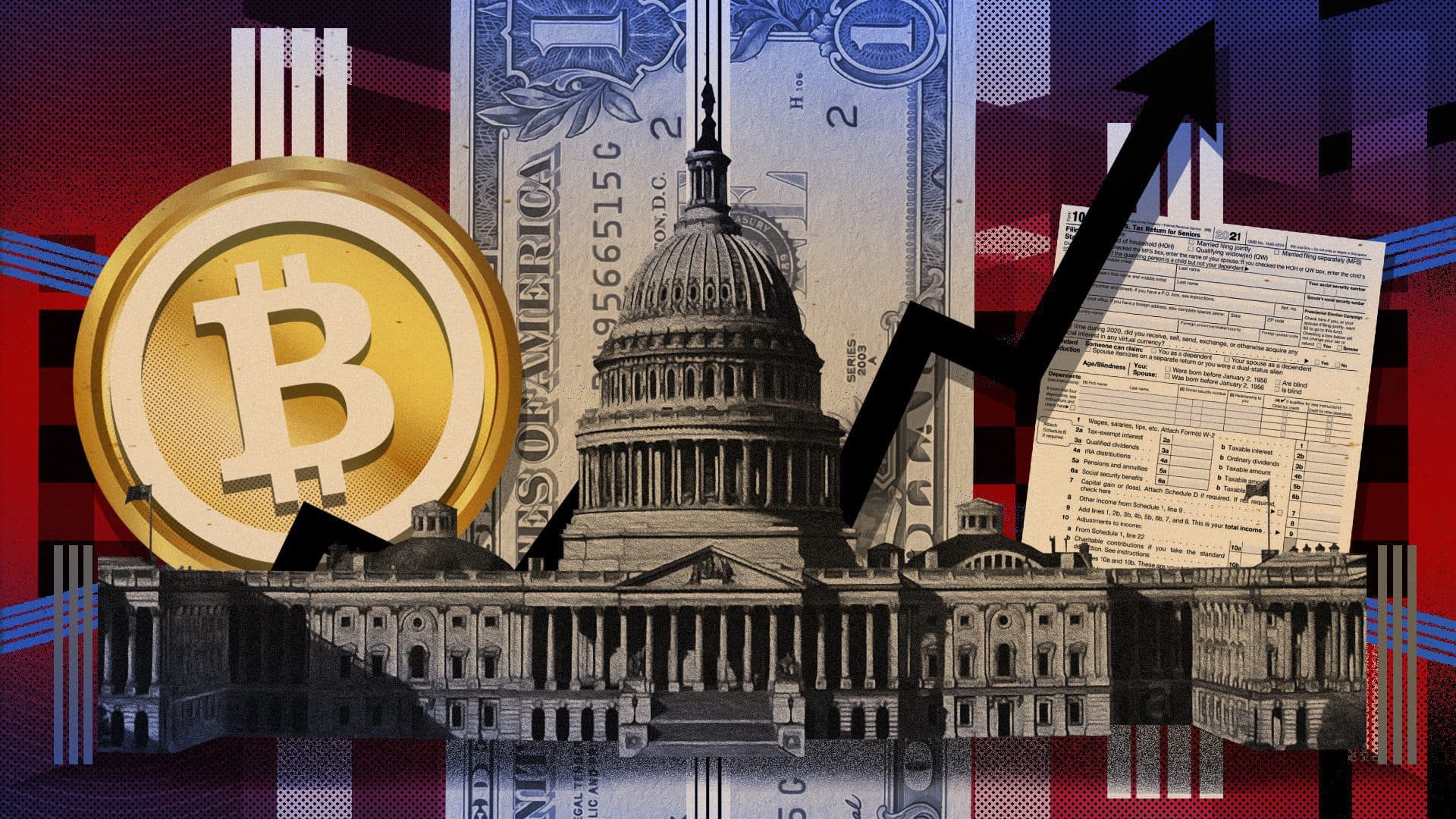New Crypto Bill Suggests Some DAOs Be Taxed Like Businesses
The bill specifies that DAOs are by default classified as a business entity, meaning that these community-led groups can expect to pay up on tax day

Blockworks exclusive art by BY AXEL RANGEL
- Senators Lummis and Gillibrand’s bill attempts to bring DAOs into the tax code, but classification of groups will be complicated
- State versus federal classifications are also concerning, one industry member said
The long-awaited bipartisan digital asset bill introduced to Congress Tuesday has many in the industry optimistic about the future of crypto policy, but sections of the legislation, if passed, may significantly change how actors in the space operate.
Sens. Cynthia Lummis, R-Wyo., and Kirsten Gillibrand, D-N.Y., co-sponsored the initiative, dubbed the Responsible Financial Innovation Act. While the bill includes some measures mentioned in other proposed legislation, it also tackles new issues for the first time, one of which being DAOs, or decentralized autonomous organizations.
In the section on DAOs, the bill specifies that the default classification for these community-led entities is as a business entity for tax purposes. It also requires most DAOs to be properly incorporated in accordance with existing laws of an identifiable jurisdiction, such as a limited liability company (LLC) or partnership.
“That means that DAOs would be taxed as corporations or as partnerships, despite the differences between DAOs and traditional corporations and partnerships,” said Dario de Martino, a cryptocurrency and blockchain attorney at Allen & Overy. “Under the existing default rules, a DAO would be a partnership if the DAO is domestic or if it is non-US, and at least one of its members does not have limited liability.”
Because DAOs are by definition decentralized and have several members, often with frequent turnover, classification and taxes are going to be complicated, de Martino added.
The bill states that to qualify as a DAO, an organization must be “properly incorporated or organized under the laws of a State or foreign jurisdiction as a decentralized autonomous organization, cooperative, foundation or any similar entity.”
“Looking forward, the definition of a DAO will be crucial — is it a corporation or a security?,” Aaron Tilton, CEO of SmartFi and former Utah state legislator, said. “DAOs allow voting rights for governance and some economic distribution rights similar to dividends.”
DAOs may require sub-classification for tax purposes depending on how they operate and how they remunerate their members, Tilton added.
“There will be much for both federal and state legislatures to tackle in the coming months and years on this issue,” he said.
The bill states that a project can avoid business disclosure requirements if it can prove it is sufficiently “decentralized” to not be considered a business entity.
“Termination of disclosure requirements is tied to whether a project has substantial evidence that there have been no entrepreneurial or managerial efforts with respect to the underlying assets,” de Martino said.
The proposed disclosure regime would remain in place until the issuer can demonstrate that the project is decentralized through an opt-out process, de Martino said. The issuer must submit a certification, which may be denied if the SEC determines by majority vote that the certification is not supported by substantial evidence.
State versus federal classification is also an issue, Tilton said. LLC and corporation filings are submitted to state entities, further complicating the potential implications of Lummis and Gillibrand’s bill, he said.
“The DAO recognition will really be handled at the state level like any other business entities such as corporations or LLC,” Tilton said. “Without state level recognition of DAOs, those federal tax implications will not be affected.”
Jae Yang, CEO of non-custodial crypto exchange Tacen, agreed, adding that enforcement will need to be further clarified.
“Who’s going to be watching these DAOs very closely remains to be seen,” Yang said. “Much like there are tens of thousands of companies that are out there, but not every single company’s internal activities are going to be reviewed by auditors or regulators from outside.”
Get the news in your inbox. Explore Blockworks newsletters:
- The Breakdown: Decoding crypto and the markets. Daily.
- 0xResearch: Alpha in your inbox. Think like an analyst.






